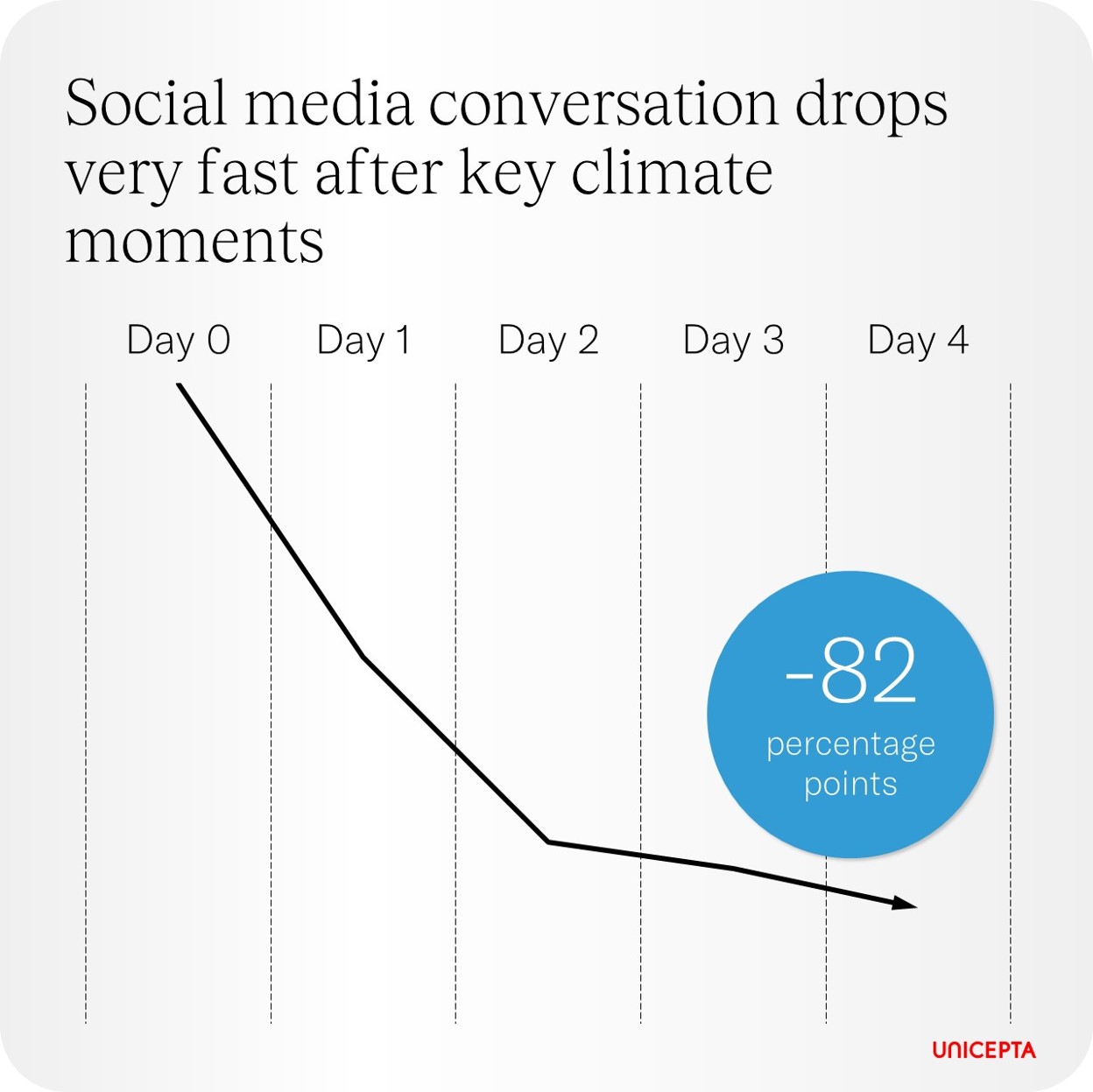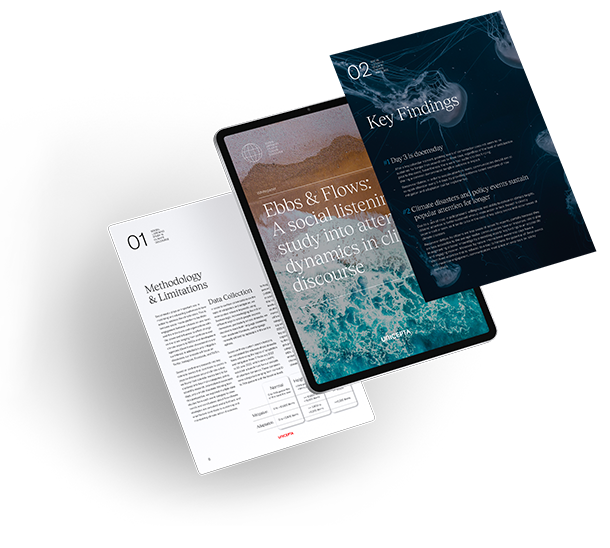
Ebbs & Flows
A social listening study of attention dynamics in climate discourse
Maximise the impact of strategic communications and
learn how climate discourse evolves around key calendar moments

Ebbs & Flows
A social listening study of attention dynamics in climate discourse
Maximise the impact of strategic communications and
learn how climate discourse evolves around key calendar moments
Climate change is among the greatest challenges facing humankind today. Recognising the threat posed by a warming planet, an ever-growing number of stakeholders supported by the general public are calling for urgent climate action – which they demand from governments, big business, and society as a whole.
Unsurprisingly, given the high stakes, climate change has become one of the hottest topics in public debate. But climate change discourse ebbs and flows over time, posing a challenge to communicators and researchers who have an interest in building momentum and sustaining attention in today’s noisy information landscape. Join us as we:
Unpack the hypothesis that popular attention peaks and quickly dissipates around key calendar moments
Identify the patterns and anomalies in people's attention to climate change
Draw key learnings and recommendations for communicators, researchers, and policymakers
In this study, UNICEPTA explores how public discourse on climate topics evolves around key events by analysing more than 46m global social media conversations published between 1 July 2022 to 31 May 2023.
Our research enables communicators, researchers and policymakers to make better and well-informed decisions. The extensive 'Ebbs and Flows' study fully commits to better understand the dynamics and timings of social debates. Learn how to activate and engage your audiences for meaningful interaction over time.
01
Key factors that drive or dissipate attention in the public discourse
02
Findings in four thematic areas: policy, scientific research, international awareness days (IAD), and climate disasters
03
Insights on the discourse around two key climate action strategies: mitigation and adaptation
04
Recommendations on how to identify and leverage the narrow window of opportunity for messaging
Benefit from recommendations for future interactions to improve strategic communication surrounding all climate topics.


Please fill out the form and we will get in touch with you. All fields marked with * are required.
Michael Urquhart
Principal
Michael has a deep understanding of how the media shapes citizen perceptions of the world around them – insight which he deploys in a research-led approach to digital media consultancy. A recent AMEC Young Professional of the Year, Michael’s work has been featured in peer-reviewed journal articles and international conferences, and he can regularly be found supporting clients in London, Brussels and Geneva.
Vesela Hristova
Managing Analyst
Vesela transforms big data sets into actionable insights to aid decision-makers in addressing myths, mis- and disinformation, and information voids, particularly around health topics including COVID-19, mpox, and abortion. She has a background in sustainable development and has previously collaborated with NGOs in researching feasible and inclusive solutions to socio-environmental challenges.
Lotte Pistor
Senior Analyst
Lotte specialises in interrogating data sets to produce accessible insights on key socio-political challenges, including COVID-19, global conflicts, and mpox. Lotte has a background in international development, with a focus on topics such as migration, gender equality and climate change.
You want to learn more
about our research-led consultancy?
Work with us